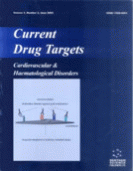Abstract
Immunosuppression is currently the major approach used for the prevention and management of transplant rejection. In this overview, preclinical and clinical studies of the small molecule immunosuppressive agents are reviewed from the discovery of cyclosporine. More recently it was demonstrated that certain agents, namely tacrolimus (FK506), sirolimus (rapamycin), and mycophenolate mofetil (CellCept, MMF), act selectively on adaptive host responses at different stages of T- and B-cell cycles and spare nonspecific host resistance. Because each agent has its specific and significant toxic effects, it has been difficult to optimize the use of individual agents in monotherapy. Therefore, drug combination therapy has been of great interest in addition to the introduction of new small molecule agents, such as malononitrilamides [MNAs (leflunomide, FK778, FK779)], 15-deoxyspergualin (DSG) and its analogues, FTY720 and inhibitors of signal transduction, which offer promising modes of immunosuppression.
Keywords: transplantation, immunosuppression, cyclosporine, tacrolimus, sirolimus, malononitrilamides, leflunomides, fty720, tepoxalin, sp100030
 2
2













